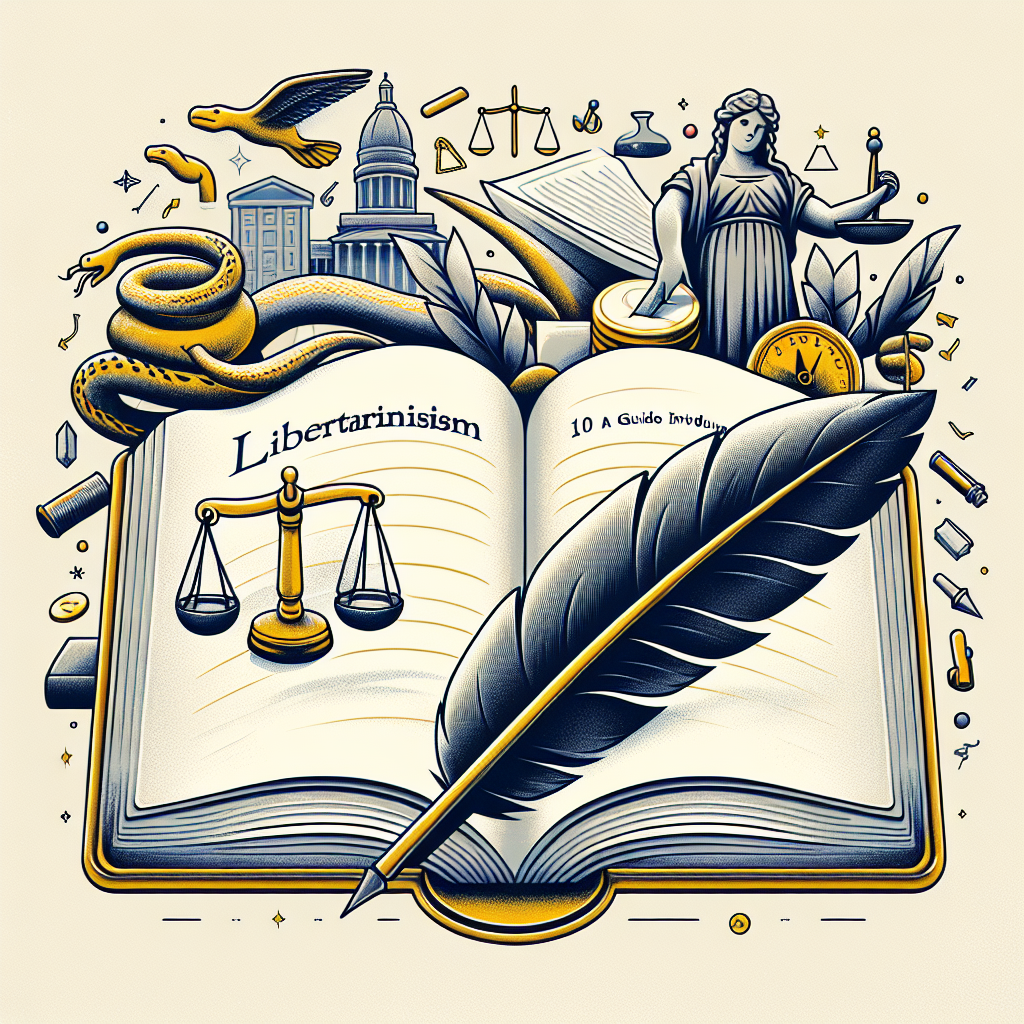Libertarianism 101: A Guide to Individual Freedom and Limited Government
Libertarianism is a political philosophy that emphasizes individual liberty, personal responsibility, and limited government intervention in both personal and economic affairs. This guide aims to introduce readers to the foundational principles of libertarianism, its historical context, and its implications for society today.
What is Libertarianism?
Libertarianism is grounded in the belief that individuals should have the freedom to make choices about their own lives without government interference. At its core, it advocates for minimal state involvement, only stepping in when necessary to protect individual rights. The main tenets of libertarianism include:
- Personal Freedom: Individuals should be free to make their own decisions as long as they do not infringe on the rights of others.
- Limited Government: The governmental role should be restricted to protecting individual rights, maintaining law and order, and providing for national defense.
- Free Markets: Economic freedom is essential for prosperity, advocating for minimal government intervention in commerce and trade.
The Historical Context of Libertarianism
Roots of Libertarian Thought
Libertarianism draws from a rich history of philosophical thought. Influential thinkers such as John Locke, Adam Smith, and Friedrich Hayek contributed significantly to ideas about individual rights, free markets, and limited government. These philosophies gained traction during the Enlightenment period, encouraging people to question authority and demand personal freedoms.
Modern Libertarian Movement
The modern libertarian movement can be traced back to the mid-20th century, primarily with the establishment of the Libertarian Party in the United States in 1971. It emerged as a response to government overreach and the perceived loss of personal freedoms during the Vietnam War era and the civil rights movement.
Fundamental Principles of Libertarianism
1. Self-Ownership
A cornerstone of libertarian philosophy is the concept of self-ownership. This idea posits that individuals own their bodies and, by extension, their labor and the fruits of that labor. Therefore, any form of coercion or theft—such as taxation without consent—is viewed as a violation of personal rights.
2. Voluntary Association
Libertarians believe that relationships, both personal and economic, should be formed voluntarily without coercion. This principle extends to both social contracts, such as friendships and marriages, as well as economic exchanges in the marketplace.
3. Rule of Law
While advocating for limited government, libertarians emphasize the importance of having a consistent rule of law to protect individual rights. This means that laws should be applied equally to everyone, and no one is above the law.
The Libertarian View on Government
The Role of Government
Libertarians argue that the government’s primary role is to protect individual rights—life, liberty, and property. This involves law enforcement and the judiciary to resolve disputes, but it excludes most regulatory functions that many other political ideologies support.
Critique of Government Programs
Libertarians often critique government programs such as welfare, national healthcare, and education. They argue these programs infringe on personal freedoms and can lead to inefficiencies, lack of innovation, and dependency on the state.
Social Issues: A Libertarian Perspective
Personal Choices
Libertarians support the right to make personal decisions, including those that affect one’s health, relationships, and lifestyle. Issues such as drug use, marriage, and consent are seen as personal matters, best handled at the individual level rather than dictated by government policies.
Non-Interventionist Foreign Policy
In foreign affairs, libertarians advocate for non-interventionism, arguing against military engagement unless directly related to national defense. They believe foreign policies should respect the sovereignty of other nations and prioritize diplomacy over military action.
Economic Freedom and Free Markets
The Importance of Capitalism
A fundamental aspect of libertarianism is its commitment to free-market capitalism. Libertarians argue that unfettered markets lead to innovation, efficiency, and wealth creation. Minimizing government intervention allows for a more dynamic economy, resulting in improved living standards.
The Dangers of Regulation
Libertarians often assert that regulations hinder economic growth and stifle individual initiative. They believe that businesses should operate freely to meet consumer needs, leading to better products at competitive prices.
Conclusion: Embracing Individual Freedom
Libertarianism champions the ideals of individual freedom and limited government, appealing to those who prioritize personal responsibility and self-determination. This philosophy offers a compelling alternative to more centralized forms of governance, advocating for a society where individuals can thrive in a free and open environment. Understanding the principles of libertarianism is essential for anyone interested in the ongoing dialogue around personal liberties and the role of government in our lives.
By grasping these foundational concepts, individuals can engage more thoughtfully in discussions about policy, governance, and the future of freedom in society. Whether you agree with libertarian principles or not, exploring these ideas can enrich your understanding of the political landscape we navigate today.
Share this content:












Post Comment